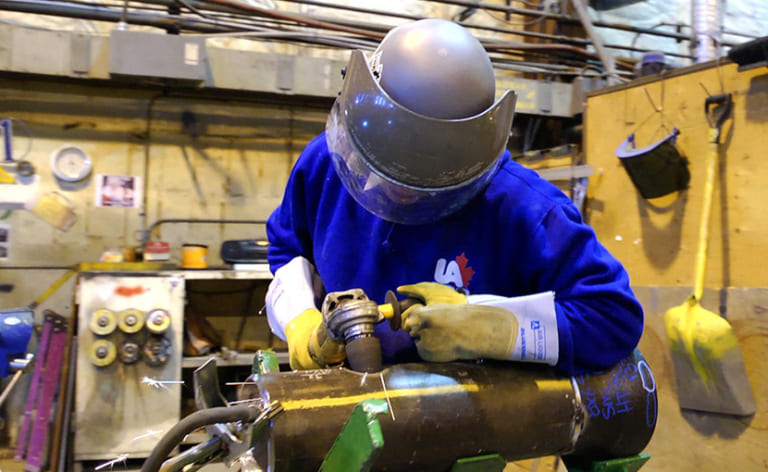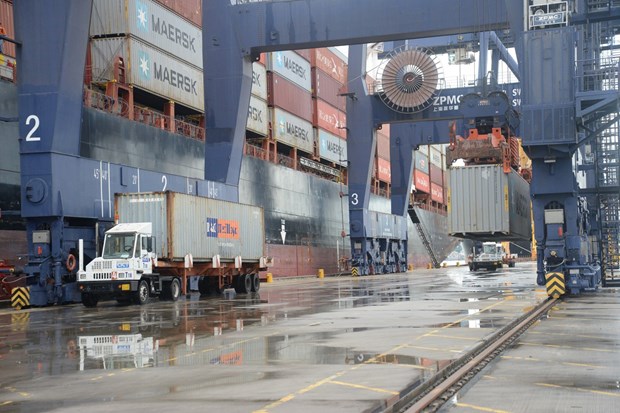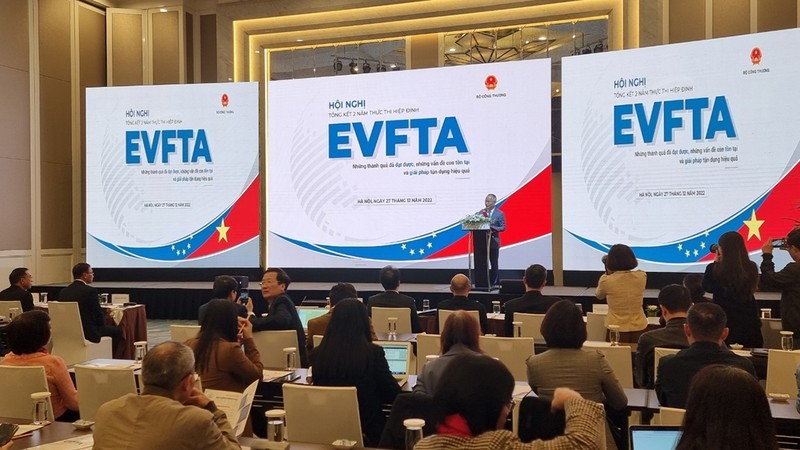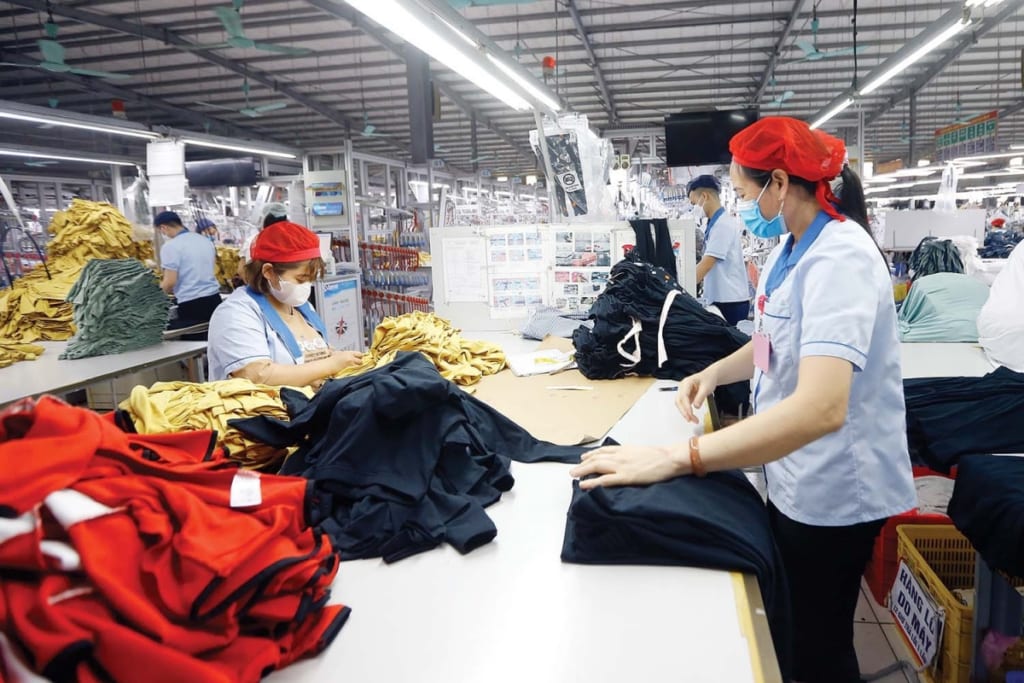In the rapidly expanding world of industrial construction and large-scale infrastructure projects, one trade consistently proves to be indispensable: pipefitting. Vietnamese pipefitters are gaining recognition as highly skilled professionals with expertise in installing, assembling, and maintaining complex piping systems. From energy plants to chemical factories, their work plays a critical role in ensuring that materials like water, gas, oil, and steam are transported safely and efficiently.
This article explores the unique role that Vietnamese pipefitters play in various sectors, the specific skills they bring to projects, and how they are shaping modern infrastructure development globally.
The Scope of Work: What Do Vietnamese Pipefitters Do?
At their core, pipefitters are responsible for designing, installing, and maintaining piping systems that transport fluids and gases under high pressure. Unlike plumbers, who typically handle water systems in residential or commercial buildings, pipefitters work in industrial environments. These environments often involve handling hazardous materials and extreme temperatures, making the role of a pipefitter highly specialized.
The work of Vietnamese pipefitters spans multiple sectors, including oil and gas, manufacturing, chemical processing, power generation, and even HVAC systems in large commercial buildings. Their job includes interpreting complex blueprints, cutting and fitting pipes, welding joints, and testing systems for leaks or weaknesses.
The Importance of Vietnamese Pipefitters in Modern Industry
As global infrastructure projects grow more advanced, so too do the demands placed on those who build and maintain these systems. Vietnamese pipefitters bring a unique blend of skill, precision, and adaptability to these projects, helping industries avoid costly downtime and maintain safe operations.
Ensuring Safe and Efficient Material Flow
One of the primary responsibilities of any pipefitter is to ensure that materials flow smoothly through a network of pipes. Whether it’s water in a municipal system, oil in a refinery, or steam in a power plant, the work of pipefitters directly impacts the efficiency and safety of operations. A poorly fitted pipe can cause leaks, equipment failure, or even serious safety hazards.
Vietnamese pipefitters are trained to handle these risks with care. They understand the materials they work with—whether it’s stainless steel, copper, or PVC—and apply the right techniques to ensure that every joint is secure, every valve functions properly, and every pipe is aligned perfectly.
Minimizing Environmental Impact
In industries like oil and gas, even a small leak can have catastrophic environmental consequences. The precision work of pipefitters ensures that such risks are minimized. Pipefitters are responsible not only for constructing piping systems but also for inspecting and maintaining them over time. They conduct regular pressure tests, leak detection, and system diagnostics to prevent spills or contamination.
This responsibility is particularly critical in environmentally sensitive areas, where any mistake could result in fines, legal challenges, or lasting ecological damage. The expertise that Vietnamese pipefitters bring to these projects helps safeguard both the industry’s bottom line and the natural environment.
Diverse Applications of Pipefitting Across Industries
Pipefitters, especially those working internationally, must be versatile and able to adapt to a variety of piping systems. Each industry presents its own unique challenges, from the materials used to the types of pressure systems involved.
Industrial Piping Systems in Factories and Refineries
In industrial manufacturing and refineries, piping systems are often sprawling networks that must transport materials like chemicals and gases under high pressure. These environments require exact precision and specialized knowledge of the materials being handled. A single flaw in a weld or a pipe connection can lead to hazardous leaks that could shut down an entire facility.
Vietnamese pipefitters play a vital role in ensuring these systems are installed correctly and maintained meticulously. Given the high-risk nature of the materials being transported, their work helps maintain safe conditions for factory workers while ensuring the efficiency of the production process.
Steam and High-Pressure Piping in Power Plants
Power generation plants depend on vast steam networks to generate electricity. These steam systems must handle incredibly high pressure and temperature, making them among the most complex and dangerous piping systems in existence. If any part of the system fails, it could result in a complete shutdown or even a catastrophic accident.
The role of a pipefitter in such environments is to ensure every weld, valve, and connection can withstand these extreme conditions. Vietnamese pipefitters are trained to handle these high-pressure systems, performing pressure tests and routine maintenance to ensure the long-term reliability of the plant.
HVAC Systems in Commercial and Industrial Buildings
Beyond industrial and energy applications, Vietnamese pipefitters are also integral to the installation and maintenance of HVAC (Heating, Ventilation, and Air Conditioning) systems in large buildings. These systems require precise piping networks to circulate air, refrigerants, or steam throughout the building. A well-maintained HVAC system improves energy efficiency, reduces operational costs, and ensures a comfortable environment for building occupants.
Water and Wastewater Treatment Systems
Water treatment and wastewater management are critical for both public health and environmental sustainability. Vietnamese pipefitters play a crucial role in ensuring that water and sewage systems are secure and free from leaks or contamination. They handle materials like stainless steel and PVC, using their knowledge of various piping materials to build systems that can transport both clean and contaminated water efficiently and safely.
Skills and Qualifications: What Makes a Great Vietnamese Pipefitter?
The role of a pipefitter demands a wide variety of skills, from technical know-how to physical endurance. Vietnamese pipefitters are known for their rigorous training and meticulous attention to detail, which makes them particularly valuable in international projects.
Technical Proficiency
At the core of pipefitting is technical expertise. Vietnamese pipefitters are proficient in reading and interpreting blueprints, technical diagrams, and isometric drawings. They use these documents to plan and install piping systems that match the specific needs of the industry. Welding is another critical skill; pipefitters must be able to join pipes securely and perform regular inspections to prevent leaks.
Physical Strength and Stamina
Pipefitting is physically demanding work. Pipefitters often work in confined spaces, lifting heavy pipes, and performing tasks in awkward positions for extended periods. Vietnamese pipefitters are trained to manage these physical demands while maintaining a high level of precision.
Problem-Solving Abilities
No two projects are the same, and pipefitters must constantly adapt to new challenges. Whether it’s rerouting pipes around obstacles or solving problems on-site, Vietnamese pipefitters are skilled at thinking on their feet. They have the ability to improvise when necessary, all while ensuring that the integrity of the piping system is maintained.
The Growing Global Demand for Vietnamese Pipefitters
As industries expand and infrastructure projects become more complex, the global demand for skilled pipefitters is growing. Companies in sectors like energy, petrochemicals, and large-scale manufacturing are experiencing shortages in skilled labour. Vietnamese pipefitters, with their advanced training and dedication to quality, are well-positioned to fill this gap.
Increasing Complexity in Infrastructure
Modern infrastructure projects require a high level of technical expertise. Pipelines for oil and gas, high-pressure steam systems for power plants, and large-scale water treatment facilities are more advanced than ever before. These systems are integral to keeping the world running, and Vietnamese pipefitters are helping to ensure that they are built to last.
Global Projects and International Collaboration
Due to the increasing demand for pipefitters, many Vietnamese workers are finding opportunities to work abroad. International companies value their skills, and agencies are actively recruiting Vietnamese pipefitters for projects in Europe, the Middle East, and other regions where industrial development is booming. These professionals bring not only technical expertise but also a strong work ethic and an ability to adapt to different cultural and regulatory environments.
Vietnamese Pipefitters in the Oil and Gas Industry: A Crucial Role
Among the many industries that rely on pipefitters, the oil and gas sector stands out as one of the most challenging and high-risk. Pipelines in this sector transport hazardous materials over vast distances, often in harsh environments such as offshore rigs or deserts. The accuracy and reliability of the piping systems are critical to the safety and efficiency of these operations.
Vietnamese pipefitters play a central role in constructing and maintaining these pipelines. Their expertise in welding, combined with their ability to handle high-pressure systems, makes them invaluable in this sector.
The Importance of Leak Detection and Maintenance
In the oil and gas industry, leaks are not only costly but also environmentally damaging. Vietnamese pipefitters are trained to conduct thorough leak detection tests, using methods such as non-destructive testing (NDT) to ensure that every weld and joint is secure. These preventive measures help avoid spills and minimize the environmental impact of operations.
The Challenges of Working as a Pipefitter: What It Takes to Succeed
Pipefitting is a rewarding but challenging career. Vietnamese pipefitters often face demanding conditions, particularly when working on international projects. Whether it’s dealing with extreme weather, hazardous materials, or tight project deadlines, they must remain focused and committed to getting the job done right.
Dealing with Hazardous Environments
Many industries, especially oil, gas, and chemical processing, involve working in potentially hazardous environments. Pipefitters are often exposed to toxic gases or chemicals, making safety a top priority. Vietnamese pipefitters are trained in the use of protective equipment, including flame-resistant clothing, masks, and respirators, to minimize their risk of injury.
Balancing Precision with Speed
Infrastructure projects often operate under tight deadlines, putting pressure on pipefitters to work quickly without sacrificing quality. Vietnamese pipefitters are known for their ability to meet deadlines while maintaining the highest levels of precision. Their work requires a careful balance of efficiency and accuracy to ensure that every system is installed safely and operates as intended.
Career Opportunities and Growth for Vietnamese Pipefitters
Becoming a pipefitter offers numerous career opportunities, both at home and abroad. Many Vietnamese pipefitters begin their careers through formal apprenticeships, which provide hands-on training in industrial environments. After gaining experience, they often pursue certifications in areas like welding or high-pressure piping, opening doors to more advanced roles.
Specialization and Continuous Learning
Pipefitters who specialize in fields such as HVAC systems or high-pressure steam piping are particularly valuable in today’s job market. Continuous education is critical for career growth, and many Vietnamese pipefitters seek out additional training to stay competitive in a constantly evolving industry.
Conclusion: Vietnamese Pipefitters Are Critical to Global Infrastructure
As global infrastructure continues to expand, Vietnamese pipefitters will play an increasingly important role in building and maintaining the systems that keep industries running. Their expertise, adaptability, and dedication to safety make them indispensable in sectors like oil and gas, power generation, and water treatment. As the demand for skilled labor rises, these professionals will remain at the forefront of modern industrial development, helping to create a more efficient, connected, and sustainable world.




